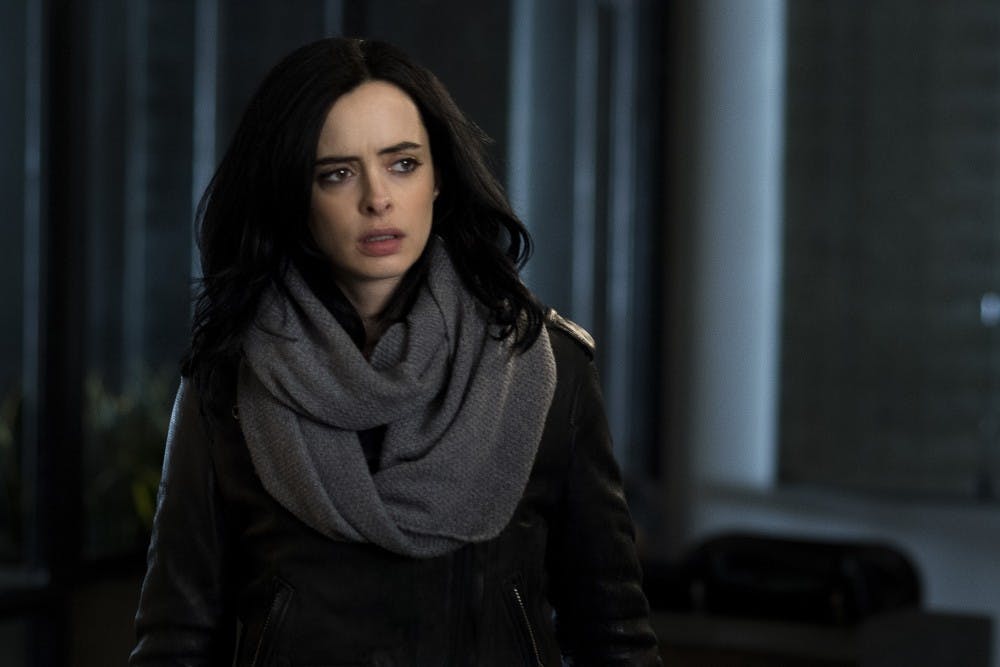Sometimes it seems like Marvel uses its Netflix presence to remind us how human some of its heroes are — not the shiny, caped crusaders in the theaters, but the ones who operate without million-dollar budgets or government-funded technology.
The heroes on Netflix bleed.
In the most recent offering, showrunner Melissa Rosenberg has widened the Marvel universe further to include Jessica Jones, played by Krysten Ritter, an underachiever turned superheroine turned private investigator after a mind-controlling sociopath named Kilgrave, played by David Tennant, uses his power to control her physically, emotionally and sexually.
From the first episode, “Jessica Jones” throws itself into the murky waters of sexism, responsibility and consent.
One of Kilgrave’s favorite orders, “Smile,” echoes the last year or so’s increased focus on cat-calling and control of women’s bodies.
Over the course of 13 episodes, the show delves into the aftermath of trauma, who is responsible for healing and whether a person who feels violated in any way is obligated to let the person responsible — intentionally or not — explain him or herself.
As a focal point, Ritter balances Jones’ traditionally antiheroic apathy toward the rules of society and acceptance of her own sexuality with symptoms of PTSD from Kilgrave’s attack.
Prickly and often slammed with memories of her past helplessness, Jones is nonetheless spurred to end Kilgrave’s influence after a new wave of attacks forces her into action.
Therein lies the needle that Rosenberg and her team of writers so deftly threaded — Kilgrave’s attack affected Jones, but for the show to work, it could not define her.
Ritter is supported by a cast of men and women who all provide different models for behavior after loss or trauma.
Patricia Walker, played by Rachael Taylor, is a standout as Jones’ best friend who is capable of protecting herself with martial arts but whose most interesting arcs involve emotional battles.
Rosenberg set “Jessica Jones” outside the alt-reality version of the world where most characters are white, straight and male.
It’s nearly 2016. It should not be surprising to see a developed female friendship onscreen, marriage difficulties between two women or more than one black man live through an entire season of a television show.
Sex is not a rarity in real life. Neither is rape.
So the gender issues in “Jessica Jones” are presented as normally in the show as they are in real life.
Props to the showrunners for constraining most of nerd-credited Tennant to the later episodes.
Too often in coverage of rape stories, discussion of the crime is avoided in favor of explaining why the defendant thought his actions were justifiable.
By leaving most of Kilgrave’s development out while setting up the protagonists’ relationships and individual problems, Rosenberg avoided potentially subsuming Jones’ story in his backstory and motivation.
“Jessica Jones” is not about rapists. It’s not about victims. It’s about people.
Anne Halliwell



